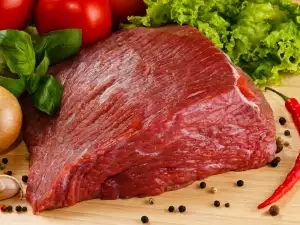Amino acids are the main building blocks of proteins in the human body. They play an important role in muscle development and the occurrence of a number of processes in the body. There exist over 170 amino acids but only 20 of them are found in the composition of proteins.
Alanine is a nonessential amino acid that carries out several important functions in the body. As it is nonessential, it means that the body can produce alanine if it has need of it.
Alanine is a particularly important amino acid for maintaining glucose levels in the blood. It is produced in the body during physical stress. It is responsible for glucose production and releasing the energy required for vital processes.
In case there is a carbohydrate deficiency in a person's diet, alanine is synthesized by the 3 branched-chain amino acids: leucine, valine and isoleucine.
Sources of Alanine
Fish, red meat, eggs, dairy products, avocados are all excellent sources of alanine. Several protein-rich plants also contain decent amounts of this amino acid.

Benefits of Alanine
Alanine plays a very key role in transporting nitrogen from the peripheral tissues to the liver. It improves glucose metabolism, by breaking down carbohydrates in order to use them to make energy.
Alanine protects the body from the buildup of toxic substances. One of the forms of alanine - beta alanine, is a component of pantothenic acid and coenzyme A, a vitally important catalyst for carrying out processes in the body.
Studies show that in people suffering from diabetes the oral intake of alanine works better than the usual meal before bed in terms of preventing nocturnal hypoglycemia.
Alanine is responsible for nearly half the amount of glucose produced by the liver. In this way, alanine is an important component in providing energy for the main systems in the body.
When it's procured in adequate amounts in the body, alanine is important source of energy for the muscles, central nervous system and brain.

It helps in sugar and organic acid metabolism, contributes to strengthening the immune system, stimulating the production of antibodies and neutralizing the toxins that result from metabolism.
When the body experiences physiological stress caused by extended physical strain or the chronic deficiency of carbohydrates, resulting from being on a low-carb diet, the body begins to synthesize alanine by using the branched-chain amino acids that compose muscle tissue.
For this reason, it's important to know that extreme diets first attack and break down muscle mass, which can seriously endanger the body's health - the weight loss seen in low-carb diets is at the expense of muscles, not fat.
Dangers of Alanine
Alanine does not lead to any side effects in the majority of people that take it in the form of a dietary supplement. Those suffering from liver or kidney problems must not take amino acids without consulting with a doctor because unwanted complications may occur.
Most people do not need additional alanine in the form of dietary supplements. For those who intend to take additional supplements of this amino acid, the daily dose needs to be determined by a medical professional.
















